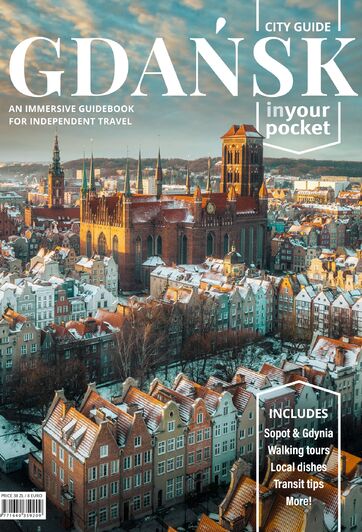Climax - transcontinental travels of people and plants
Jun 25 - Oct 31 2021
ul. Polska 1 (Dworzec Morski), Gdynia
This emigration was part of the dynamic social, economic and political processes that shaped the new world order. Has the well-known and often researched story of Polish emigration to South America been fully told? What do we know about it? Nature had an impact on the work of Polish immigrants and largely determined their culture, which – after being brought to Latin America at the turn of the 19th century – had to thrive in completely new circumstances, which shaped it, leading to the evolution of new folklore. Over time, customs, traditions, and practices entered into dialogue with the local culture, which led to mutual interpenetration.
Climax is not only a story about the fate of Polish settlers, but above all is an attempt to take a closer look at the issue of migration from a broader point of view – as a joint migration of people, plants, traditions, and ideas.
The very notion of climax refers to a point in time where a given matter is heading towards its end but has not yet reached its resolution. It paints a picture of limbo – the state where one process of change ends, making room for the next one to take place. Touching upon this notion gives rise to a new field of debate about the permanence of the places where we live and the rules that control our lives.
The exhibition encompasses a series of photographs by Marianne and Katarzyna Wąsowska, poetic works by Urszula Zajączkowska, an example of a Wardian case, and various activities of the Biodiversitatis Foundation, which deals with the protection and study of plant and animal species found in endangered forest areas in Colombia. This part is also accompanied by ‘Stanhopea Tigrina’, a film directed by Maciej Dydyński with poetic narration by Julia Fiedorczuk.
The narrative in the Waiting for the Snow photographic project by Katarzyna and Marianne Wąsowska revolves around the history of Polish settlers who went to South America. The exhibition comprises photographs taken by the authors, archive documents, and family albums from Argentina and Brazil. Then there are nine short literary forms written by Urszula Zajączkowska – a poet, botanist, and artist – which enters into a dialogue with the pictures.
The exhibition also includes a rebuilt and overhauled Wardian case – a special glass box designed by Nathaniel Bagshaw Ward in the 19th century, whose purpose was to transport plants. The new invention enabled plant specimens to be transported between continents and be grown where they never grew before.
The space dedicated to the activities of the Biodiversitatis Foundation presents several possible scenarios of change, the directions of which depend on the degree of biodiversity. It is about the whole universe of living organisms, interacting with each other as part of a network of ecosystems. The disappearance of one species can be crucial to the entire chain of dependency. We are currently witnessing a mass extinction of flora and fauna, and we are still unable to imagine what the present and future consequences of this process will be.
The exhibition is part of a broader discussion about the legacy of colonialism, the impact of the Anthropocene, as well as the ecological responsibility of museums. That is why the architectural elements of the exhibition include some reworked elements of Carboland – the previous offering.
Admission to the exhibition is FREE of charge.
The exhibition will be open from 25 June to 31 October 2021.
Date
Venue
Open 10:00-18:00. Tue 12:00-20:00, Closed Mon.
Jun
25
2021
- Oct
31
2021
Emigration Museum
ul. Polska 1 (Dworzec Morski), Gdynia
ul. Polska 1 (Dworzec Morski), Gdynia









